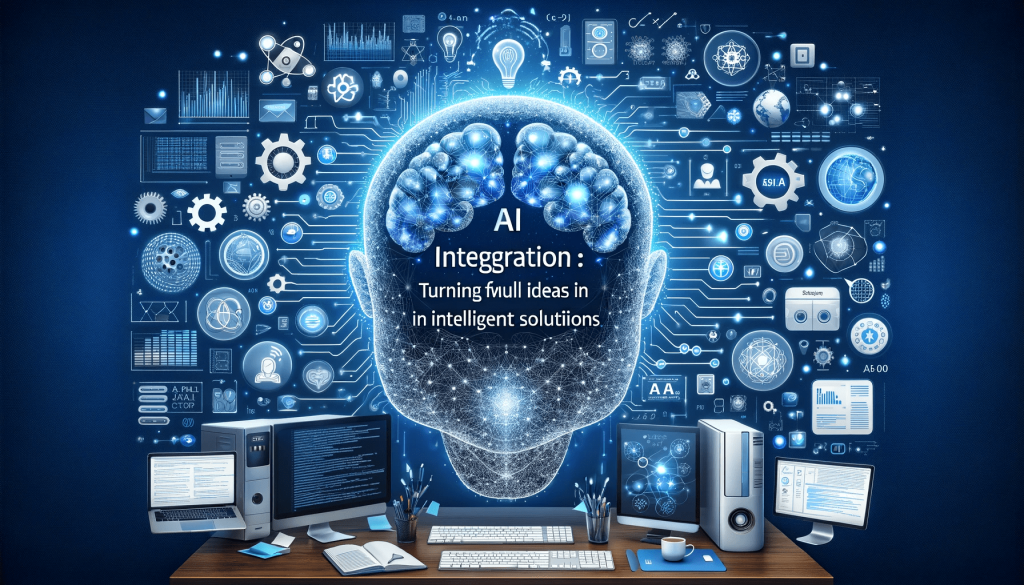Harnessing Big Data: Analytics for Better Business Decisions

In today’s fast-paced digital world, the ability to harness big data has become a critical differentiator for businesses aiming to stay ahead. By leveraging vast amounts of data, companies can gain deeper insights, make informed decisions, and drive significant competitive advantages. This blog post explores the transformative power of big data, detailing how it works, its benefits, real-world applications, and practical tips for effective implementation.
Introduction
Imagine being able to predict customer behavior, optimize operations, and innovate with precision. Big data analytics makes this possible by turning vast volumes of data into actionable insights. As businesses strive to thrive in a data-driven economy, understanding and utilizing big data is no longer optional—it’s essential. This post delves into the fundamentals of big data, its impact on business, and how you can harness its power for better decision-making.
What is Big Data?
Big data refers to the large, complex datasets generated from various sources that traditional data processing systems cannot handle efficiently. It is characterized by four key attributes known as the 4 Vs:
- Volume: The vast amount of data generated every second.
- Velocity: The speed at which new data is generated and needs to be processed.
- Variety: The different types of data, including structured, semi-structured, and unstructured.
- Veracity: The uncertainty and quality of data, which impacts its reliability.
Importance in Modern Business
Big data plays a crucial role in the modern business landscape, enabling organizations to gain valuable insights, improve decision-making, and enhance operational efficiency. Companies that effectively leverage big data can stay ahead of the competition by responding more quickly to market trends and customer needs.
How Big Data Analytics Works
Data Collection
Big data is collected from various sources, such as:
- Social Media: User interactions, posts, likes, and shares.
- IoT Devices: Sensors, smart devices, and connected equipment.
- Transaction Records: Sales, purchases, and financial transactions.
- Web Logs: User activity and behavior on websites and applications.
Data Storage
To manage and store big data, businesses use several solutions:
- Cloud Storage: Scalable and flexible storage solutions provided by cloud service providers like AWS, Google Cloud, and Azure.
- Data Lakes: Large repositories that store raw data in its native format until needed.
- Data Warehouses: Structured storage systems optimized for query performance and analytics.
Data Processing
Big data processing involves techniques to handle large datasets efficiently:
- Batch Processing: Processing large volumes of data at once, suitable for periodic tasks.
- Real-Time Processing: Analyzing data as it is generated, ideal for time-sensitive applications.
Data Analysis
Analyzing big data requires advanced tools and methods:
- Machine Learning: Algorithms that learn from data to make predictions or decisions.
- Statistical Analysis: Techniques to interpret data and identify trends.
- Data Mining: Discovering patterns and relationships within large datasets.
Key Benefits of Big Data Analytics
Improved Decision-Making
Data-driven insights enable businesses to make more informed and strategic decisions, reducing uncertainty and risk.
Enhanced Customer Insights
Understanding customer behavior and preferences allows companies to tailor products and services, improving customer satisfaction and loyalty.
Operational Efficiency
Big data helps streamline operations, optimize processes, and reduce costs through data-driven process improvements.
Competitive Advantage
Leveraging data insights gives businesses a market edge, enabling innovation and agility in responding to market changes.
Real-World Use Cases
Retail: Personalized Marketing and Inventory Management
Retailers use big data to create personalized marketing campaigns based on customer behavior and preferences. Inventory management is optimized by predicting demand and adjusting stock levels accordingly.
Healthcare: Predictive Analytics for Patient Care
Healthcare providers use predictive analytics to identify at-risk patients and personalize treatment plans, improving patient outcomes and operational efficiency.
Finance: Fraud Detection and Risk Management
Financial institutions leverage big data to detect fraudulent transactions in real-time and manage risks more effectively through comprehensive data analysis.
Manufacturing: Predictive Maintenance
Manufacturers use big data to predict equipment failures before they occur, reducing downtime and maintenance costs while optimizing the supply chain.
Challenges and Considerations
Data Privacy and Security
Ensuring data protection and compliance with regulations like GDPR and CCPA is paramount. Businesses must implement robust security measures to protect sensitive data.
Data Quality
High-quality data is essential for accurate analysis. Companies must address issues related to data accuracy, completeness, and reliability.
Skills and Expertise
Skilled data scientists and analysts are crucial for interpreting and leveraging big data. Investing in talent and training is necessary to build a competent team.
Technology Infrastructure
Investing in the right tools and technologies is essential to support big data initiatives. Scalable infrastructure and advanced analytics platforms are key components.
Practical Tips for Harnessing Big Data
Starting Small
Begin with pilot projects to demonstrate the value and scalability of big data initiatives. Small successes can build momentum for larger projects.
Investing in Technology
Choose the right big data tools and platforms that align with your business needs and scale as your data grows.
Building a Data-Driven Culture
Encourage data literacy and decision-making across the organization. Foster a culture where data is integral to strategy and operations.
Partnering with Experts
Collaborate with data science and analytics experts to maximize the potential of big data. External expertise can provide valuable insights and accelerate your initiatives.
Resources for Further Learning
- Articles: “Big Data: A Revolution That Will Transform How We Live, Work, and Think” by Viktor Mayer-Schönberger and Kenneth Cukier.
- Courses: “Data Science Specialization” on Coursera, “Big Data Analytics” on edX.
- Communities: Data Science Central, Kaggle.
Conclusion
Harnessing big data is essential for making better business decisions and achieving long-term success. By understanding how to collect, store, process, and analyze big data, businesses can unlock valuable insights that drive strategic decisions and operational efficiency. Embrace big data analytics to transform your business and stay ahead in the competitive landscape.
Big data holds immense potential for businesses willing to invest in the right tools, talent, and strategies. By starting small, fostering a data-driven culture, and partnering with experts, you can effectively harness the power of big data to drive better business decisions and achieve long-term success. Begin your big data journey today to unlock new opportunities and enhance your competitive edge.






 and then
and then
Responses